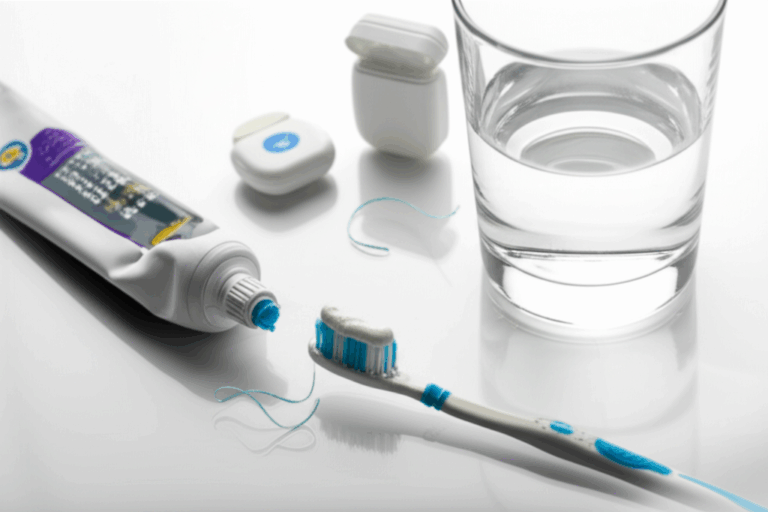
How Much Do Dentists Make in Malaysia? (Average Salary & Income Breakdown 2025)
Introduction: Understanding Dentist Salaries in Malaysia
I remember, back when I was thinking about my career options, the biggest question I had was simple: “How much do dentists make in Malaysia?” If you’re reading this, maybe you’re looking for real numbers before you decide to study dentistry. Or you might already be in this field, planning your next steps. Whether you’re a student, a young professional, or someone just curious, I want to give you a real, honest look at how dentists get paid in Malaysia in 2024.
Let me be honest with you—a dentist’s salary here can change a lot. I’ve seen fresh graduates start at around RM 3,000 to RM 4,500 a month, while private practice owners and specialists can earn ten, twenty, or even a hundred thousand ringgit a month (especially if they run successful clinics). That’s not just a guess—it’s what’s really happening, as I’ll show you soon.
But money isn’t just about the numbers you see. It depends on dozens of things: your experience, where you work, what kind of dentistry you do, your reputation, and even which city you call home. I’ll talk you through all of it—including the realities of business costs, job market competition, and what it truly takes to move up in this career.
Table of Contents
Average Dentist Salary in Malaysia (Overall)
Let’s get straight to the point: what do dentists in Malaysia earn on average right now?
From my own experience and from talking to many others in the field, I’d say a normal dentist in Malaysia earns about RM 4,000 and RM 8,000 per month. That covers both government and private sector jobs, and it includes dentists working for a clinic who get a basic salary plus a percentage of what they earn for the clinic.
If you look at the yearly salary, it’s usually RM 48,000 to RM 96,000 before taxes and other payments. Some earn a bit less, some much more—especially if you specialize, own a clinic, or do treatments that are very popular.
To put it in practical terms, this income range is comfortable in most parts of Malaysia. But once you hit the bigger cities like Kuala Lumpur or Penang, don’t forget your cost of living is much higher, from rent to daily expenses.
Let me share a quick story. A friend of mine started in a government clinic outside the city, earning roughly RM 4,000. He managed fine, but his money left after paying his bills only started to go up after a few years—once he moved into private practice and focused on getting a good number of regular patients.
Dentist Salary by Career Stage / Experience Level
One thing that’s clear to me after years in this field: how much you earn as a dentist goes up as you get more experience. But how fast it grows, and the most you can earn, depends a lot on where and how you work. Here’s a real look at the journey, step by step.
Fresh Graduates / Housemanship / Compulsory Service
If you’re just finishing dental school, you’ll start your career in required government service, known as housemanship. I’ll be honest—you don’t make a lot of money here.
Most fresh graduates get RM 3,000 to RM 4,500 monthly (including basic salary plus allowances like housing and a critical allowance). Don’t let the low number scare you. Government jobs offer great job security, generous leave, and contributions to EPF (Employees Provident Fund) and SOCSO (Social Security Organization). That’s a safety net that some private jobs don’t have.
It’s worth noting that this housemanship is required—usually for two years—so almost everyone starts this way.
Early Career (1–5 Years Experience)
Once you’ve finished that first period, you’re ready for a real pay raise.
Government Sector: With becoming a permanent dental officer, your salary goes up to about RM 4,500 to RM 7,000 monthly. You can move up pay grades, and the benefits (like training, a pension, and good hours) still make this a good choice for many.
Private Sector: Dentists in private clinics might see a slightly wider range—some start at RM 4,000 if patient traffic is slow, but hard-working dentists in busy clinics can earn up to RM 8,000 or above, especially when the commission payments start. One of my former classmates told me her pay went up a lot after she moved to a clinic in a good city spot, just because there were more patients.
Mid-Career (5–10+ Years Experience)
General dentists with some experience really start to see the rewards.
In private clinics, RM 8,000 to RM 15,000 monthly is realistic, especially if you are known for doing good work. You might even be asked to become a partner in the clinic if you bring in enough patients.
In the government sector, you can rise to higher-level Dental Officer jobs, earning a similar or slightly higher amount, especially with extra allowances. However, most of the really big pay jumps come if you move to the private sector or specialize.
Senior / Highly Experienced Dentists
If you’ve worked for ten years or more and have a good reputation, you can earn a lot of money.
I know clinic owners who earn RM 20,000, RM 50,000, or more each month (before paying taxes and other costs, of course). This isn’t easy—business costs, staff salaries, rent, and stress all go up. But with good business sense and a loyal patient base, the earnings can be very high.
Specialists—like orthodontists or oral surgeons—can see similar or even higher numbers, which I’ll break down shortly.
Dentist Salary: Government vs. Private Sector Comparison
This is one of the first questions younger dentists ask me: should I stay in a government job, or move to a private clinic? There’s no single answer for everyone, but I’ll tell you what I’ve seen.
Government Sector (Ministry of Health)
In the public sector, everything is based on a set salary plan. Entry-level officers get the critical allowance, housing allowance, and paid leave. Pay goes up slowly over time, so your income is safe, but maybe not super high.
Senior Dental Officers or specialists get more (up to RM 15,000+), and you also get a pension when you retire. If you like security, regular work hours, and retirement money, this is a good choice.
Downsides? Sometimes promotions are slow. The pay might be less than what you could earn in busy city clinics, especially in those first five to ten years.
Private Sector (Clinics & Own Practice)
This is where things are less certain—but also exciting. Your income in private practice depends on:
- How many patients you see
- The types of services provided (simple fillings don’t earn as much as implants or orthodontic work)
- If you’re an employee or the owner
Employees receive salary plus commission, often around 40–50% of the money they bring in from their work. In busy, well-known clinics, that can translate to RM 8,000, RM 15,000, or more monthly. If you’re new, or the clinic isn’t busy, you might only make a little more than in a government job.
Clinic owners can earn a lot, but only if their business runs well. You take home profits after deducting rent, staff, lab fees (think about your partners in the dental ceramics lab or crown and bridge lab), materials, and marketing. A successful owner in a good area might pocket RM 20,000–100,000 monthly, but the risk is all yours if the business does poorly.
I decided to move to a private clinic after seeing the limit on how much I could earn in a government job. It was scary, but eventually, building my own group of patients was the key to earning more (and enjoying my job more).
Specialist Dentist Salary in Malaysia
Let’s be honest: not all dentists earn the same amount. Becoming a specialist gives you more opportunities—if you are willing to study for a few more years.
Why Specialists Earn More
The biggest increase in how much you can earn comes from specializing. Why? Special services mean you can charge more, and there aren’t as many orthodontists or oral surgeons as there are general dentists. Plus, extra qualifications mean patients (and clinics) are willing to pay more.
Specialist Income Ranges & Comparison
Here’s what I’ve seen as typical salary ranges:
- Orthodontists / Oral Surgeons / Periodontists:
Government: RM 7,000–15,000+ with allowances.
Private: RM 10,000–30,000+ per month if you join a busy clinic as an employee.
- Paediatric, Endodontic, or Prosthodontic Specialists:
A bit less, but still a lot more than a regular dentist earns, especially in private or city clinics.
Remember, well-known specialists who own their own clinics with many regular patients can earn even more than this. I’ve heard of orthodontists who make RM 40,000–80,000+ a month after all costs are paid, but they usually work long hours and it takes years to become that successful.
In government practice, there is a limit on specialist salaries, but you still enjoy security and good benefits. In private, how well you do decides how much you earn.
Key Factors Influencing a Dentist’s Income
Think of a dentist’s income like a mix of ingredients, not one set number. From my experience, here are the things that matter most:
- Experience Level:
The longer you’ve worked, the more treatments you can do well. Patients trust you and tell their friends about you, and that means more patients and more money.
- Sector (Government vs. Private):
Government jobs are more stable, but private jobs offer more freedom and higher pay… if you’re willing to work for it.
- Specialization:
Extra training in orthodontics, surgery, or aesthetics (veneers, implants, etc.) lets you charge higher prices.
- Location:
City clinics have more patients (and charge more) but also have more competition and higher costs. Rural clinics may earn less per patient, but sometimes the lower cost of living balances things out.
- Type of Practice:
If you have your own clinic, you get all the profit—but also take all the risk. Join a corporate chain or group practice, and you might have less freedom, but you get help with resources and a steady number of patients.
- Management Skills (Private Practice Owners):
I’ve seen skilled dentists have a hard time because they couldn’t manage their staff or control their costs. Knowing how to run a business is just as important as being a good dentist.
- Patient Volume & Reputation:
A full schedule of patients is what every dentist wants. It can take years to get a lot of regular patients, but it’s the real key to a stable income.
- Services Offered:
The more special or popular your services are, the better your earning potential. Cosmetic procedures and implants, for example, can increase your earnings much more than everyday fillings and cleanings.
- Operating Costs:
Don’t forget these—rent, staff, utilities, materials, lab fees (hello digital dental lab), and equipment repair. Your total income may look great, but what you take home after paying for everything tells the real story.
Career Progression and Long-Term Earning Potential
Let’s say you start out in government service, like most dentists. After a few years, your pay stops growing unless you learn new skills or change jobs. Here’s how many of us (including me) earn more over time:
- Moving from a Government Job to a Private One:
Once you’ve finished required service, some stay in government jobs and get promotions over time. Others (like me) move into the private sector to try to earn more money—first working for someone else, and later becoming a partner or owner.
- Opening Your Own Clinic:
Be warned: it takes a lot of hard work, money to start, and a good number of patients. But if you do it right, owning a clinic is how you can really earn a lot more.
- Pursuing Specialization:
Extra years of study aren’t for everyone, but they let you charge more and you’ll have less competition. You’ll have to decide if the time and money are worth it for your future goals.
- Continuing Professional Development (CPD):
Dentistry is always changing. I’ve seen other dentists do very well just because they kept learning new skills, from mastering implants to using new technology like CAD/CAM or 3D printing (if you’re curious, here’s what a 3d dental lab looks like).
No matter which path you choose, the main lessons are the same: build relationships, focus on patient satisfaction, and never stop learning. Over time, your pay will eventually match your skills and how well you are known.
Is Dentistry a Good Career in Malaysia Financially?
So after 20 years in this job—with many ups and downs—what do I honestly think? Here’s the honest truth.
The Pros:
- Being a dentist in Malaysia is a respected and stable job.
- Even at the starting level, the pay is good compared to many other jobs.
- Once you specialize or succeed in private practice, your pay can be higher than in most other healthcare jobs.
- There’s a good feeling that comes from helping people maintain their oral health and confidence.
The Cons:
- Dental school costs a lot—anywhere from RM 150,000 for local degrees up to RM 1,000,000+ if you study overseas.
- It’s now harder to get jobs, particularly for government posts.
- Running your own clinic is risky: business skills are just as important as your dental skills.
- Business costs (rent, wages, materials, etc.) take a big part of your earnings.
Market Demand and Future Outlook:
People will always need dentists. With Malaysia’s growing population, aging baby boomers, and more people wanting cosmetic dental work, the job still has a good future. However, technology and what patients expect change quickly—so you have to be ready to change and keep learning.
Ask yourself: Are you ready to study for years? Can you handle managing people and a business? Are you willing to learn your whole life and adapt to change? If you said yes, being a dentist can make you happy and be good for your finances.
Conclusion
After years working in this field—first in the government, then for a clinic, and now as a clinic owner—I’ve seen the whole range of dentist salaries in Malaysia. The amount you can earn varies a lot: from the safety of a government job, to the big earnings (and risks) of private clinics and specializing.
- Fresh graduates can expect a good, but not huge, starting salary with government benefits.
- Experienced associates and specialists can earn salaries that match or are higher than other jobs, especially with dedication and smart career moves.
- Clinic owners willing to take on the responsibility can earn a very large amount of money.
More important than just the numbers is understanding the path—how your experience, where you work, your city, skills, and business knowledge all affect your career and how much you make.
If you’re thinking about this career, do your research. Think about the real costs, know what you’re good at, and plan for the long term. Dentistry in Malaysia, in my experience, is still a good financial choice for people who are patient and willing to change.
For more on oral health, check out the basics of teeth health, or take a deeper dive into practical dental care tips. If you want to explore dental technology, see what a modern digital dental lab can offer.
Still have questions? I promise—you’re not the only one. Every successful dentist in Malaysia has thought about these same things. Get your information, talk to dentists who are already working, and trust your gut. Good luck on your path—I hope you gain skills, respect, and if you work smart, the money you are looking for.








